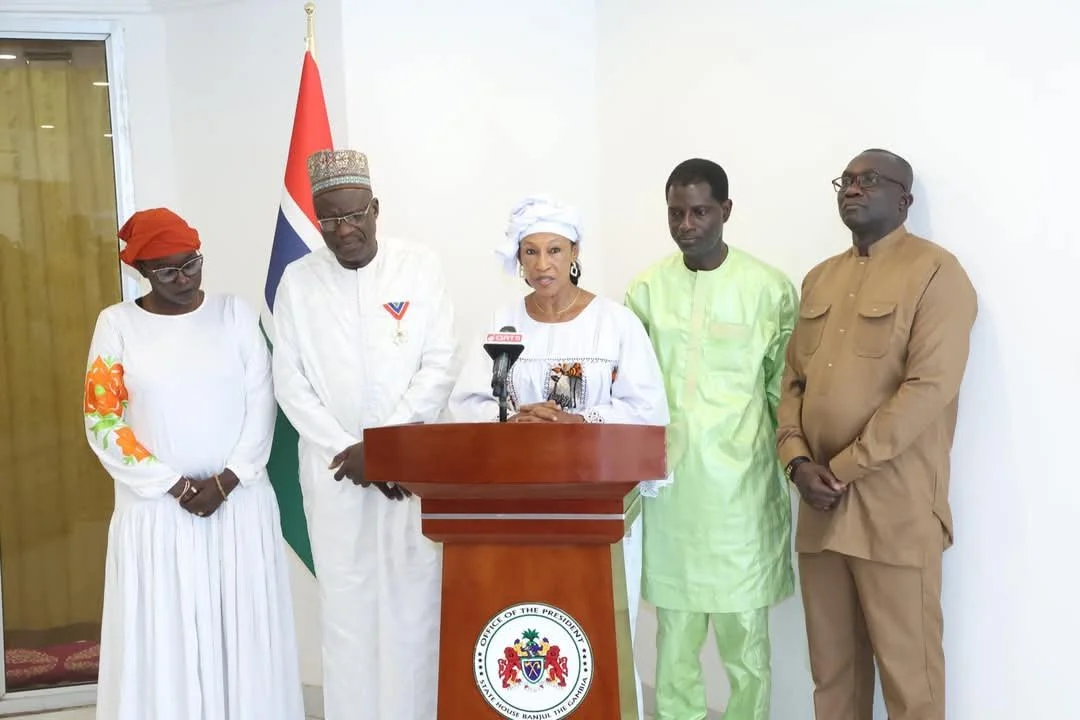President Barrow Reaffirms Commitment to Transparency in ATI Meeting
President Barrow, Information Minister and Chief of Staff with ATI Commissioners © State House
By Fatou Jaiteh
According to the Office of the President, the Access to Information (ATI) Commission made a significant visit to State House on 18th March 2025.
The Access to Information Act 2021 serves as a key legislative framework that empowers citizens by granting them the right to access public information. Despite this progress, journalists and civil society organisations continue to advocate for stronger enforcement of the law. While improvements have been made, ensuring full and effective access to information remains an ongoing challenge.
The ATI Act 2021 was first introduced in Parliament in 2019 alongside the Anti-Corruption Bill. The ATI Act was eventually passed in 2021, and commissioners were eventually sworn in last year, 2024. Meanwhile, the Anti-Corruption Bill was passed in 2023; however, two years later, no commissioners have been sworn in. This demonstrates the Executive’s preference to implement the ATI Act over the Anti-Corruption Act.
In his latest demonstration of support, President Adama Barrow met with the Information Commissioners at State House in Banjul to discuss their strategic plans for enhancing public access to information. During the meeting, the commissioners outlined their roadmap for improving access to government-held information and requested government support for implementing their initiatives.
The development of the National Roadmap for the Implementation of the ATIC Act was developed with the input of representatives from civil society and media and validated on 17th January 2025.
President Barrow reaffirmed his commitment to the initiative, recognising the crucial role of access to information in The Gambia’s development. Expressing satisfaction with the commission’s progress, he assured them of his continued support in their efforts to promote transparency.
The meeting concluded with the commissioners expressing gratitude to President Barrow for his dedication to improving access to information, emphasising that such efforts are vital in building a more open and accountable government.
With continued government backing and civil society advocacy, The Gambia is making strides in fostering a culture of transparency. However, challenges remain in ensuring full and practical access to information for all citizens.
According to the new Yiriwaa National Development Plan 2023 to 2027, the “government will invest in modern ICT, such as mobile phones and improved internet availability, for facilitating access to information: to enhance productivity on the farm, enable agricultural innovation, provide access to financial services and markets, promote the use of “made in the Gambia” products, and provide coaching and mentorship for youth in business and skills in packaging, processing, labelling, marketing, and branding.”
The meeting at State House could mark a pivotal moment in the drive for greater transparency, as it signals efforts to strengthen cooperation between the commission and the executive branch. However, the outcome of the discussions remains uncertain, and it is yet to be seen whether this visit will lead to tangible improvements in access to information.
ATI Commissioners at State House © State House


